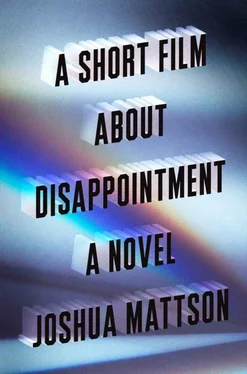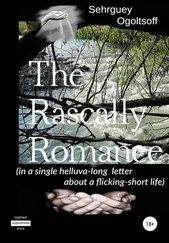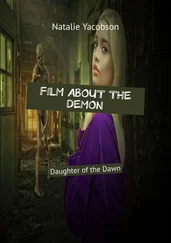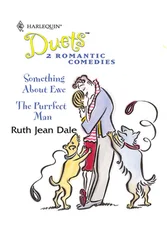The Blood Orange elevated. We slid over the duplexes into a neighborhood of weathered apartments.
And here was Dr. Lisa in black slacks and white blouse, a sauce stain over her liver. At the gardens, near the pond, I looked at the lily pads and thought of Osvald drowning in a rowing accident. My face. She put her hand behind my right ear and pressed hard, grinding in her fingers, covering my eyes with her left hand, and the attack passed.
Her condominium, four rooms. It was not much larger than my apartment but it was cleaner, brighter, and warmer. The couch I had fantasized about lounging on was not existent. Instead there was a large table that took up the living room, the top of which was covered with ferns and lilies, patient files, a few books. All this was shoved aside at the end where she had set two places for dinner. No balcony. I can’t stand balconies. Why not stand on the ground outside? The floors synth-wood. The walls cloisonné. Nothing hanging. There was a spot where there had been a picture hanging.
Dr. Lisa said, Come keep me company.
A clump of bucatini into the bubbling water. It was too tall for the pot, so she snapped it in half.
She said, Today the fear landed on me. I was getting coffee before work at this place I like by the canal. I see this man there writing in his notebooks. For five years almost every day he’s there. What is he writing, why is he smiling? Is he misguided about what he is going to accomplish? Is it therapy? I began to think there was something for me to accomplish, and after I accomplished it, I could die without much fear, but I could not identify what it was. The line was moving slowly, and my head hurt. Maybe it was going somewhere else and performing my job. But then I thought, why are doctors expected to be saviors? Sanitation workers don’t go dig sewers in other countries. Maybe it was a calling, like sculpture. It certainly isn’t a child. I was glad to rule that possibility out. With this woman beside me in line trying to make small talk, and I’m trying to not be rude, but in my mind I’m rifling through my interests, to try and see what might be my connection to the sublime. I thought, could it really be true that we make things to stave off the finality of existence? Maybe every passion has a kernel of meaninglessness. Maybe consciousness really is a quantum phenomenon and exists between yes and no and is neither. Twenty minutes I waited for my coffee, and felt panicked because I could not identify what it might be. Went to work, helped people, which helped. Came home an hour ago. Then the sauce on my shirt. I thought, who cares?
I said, You’re lucky it’s an infrequent visitor. But passion comes and goes, like a cat. Even for people. It is haughty and fickle. It finds a safe place to lick its ass.
She said, Do you worry about death? Is there some quota of transcendence you feel you need to meet?
I said, Sort of. Being dead doesn’t frighten me but passing into that state does. For me, it isn’t so much that I am missing something, although I am, and maybe making this film will help. For me, the sin seems to be inattention. A sumptuous banquet of moments has been laid out for me but I don’t have an appetite. But yes, when life becomes attached to the language of production, then there is a problem. This is how we, as a society, got here, by demanding a return on our attention.
She said, We’re back to cognitive dissonance. The sublime must be chased but it doesn’t matter. Nothing matters, at least in a personal sense. Here I am giving myself permission not to be messianic, but I am also ordering myself to explore the furthest reaches of my possibility.
I said, The peace of flesh and the restlessness of the soul.
She said, The restless flesh is enough for me. I think maybe the ancient people had it right when they didn’t try to worship an omega figure. They stuck to their local gods, the sun, corn, wine, fertility, blankets. They kept worship in their bodies.
Which reminded me of A Short Film About Disappointment . I described it for her. Two women, a wheelbarrow. The haggard joker is Maquilla, on the set straight from rehab. Hence the affirmative pap, the balsa pieties. Her partner in grime is Dame Judith Badchen-Hannesruck, fresh off an award-winning turn as Natalya, the baffled astronaut, in Golden Nails . The pair learns of a certain garden in which, underneath the turnips, lies the world’s largest emerald. They get to digging. Maquilla, bless her, was willing to risk derision for starring in a film about digging a hole. They find they have dug themselves too deep, and they can’t get out.
Maquilla says, Isn’t it nice and cool down here?
Dame Judith says, Yes, and the soil smells wonderful.
Dr. Lisa flung a strand of bucatini at the wall. Who else had stood here, watching the strands slide down the tile?
She said, Go sit down.
From the kitchen her mild curses, drawers. She came out with two plates. A fresh stain near the collar of her shirt. She dusted the plates with a fist of herbs.
There was too much on my plate, but I felt like it would be an insult to eat only a third or a half. Dr. Lisa paced herself without a sign of satiation. Maybe a brain like hers required more calories. One of the privileges of solitude was the thoughts she had been having, which organize themselves into concepts and convictions without the vacuum of a sympathetic ear sucking them from one’s mouth.
She said, You don’t like it?
I said, No, I do. It’s a lot.
She said, Carbohydrates before exercise.
Heat in my face. She laughed.
She said, Eat it all and later you will clean the dishes. Didn’t your mother make you clean your plate?
I said, My mom wasn’t much of a cook.
Chewing.
I said, I can’t finish it all.
She said, Don’t finish it all.
I said, Show me the plants.
Dr. Lisa, brushing her teeth, showed me around. Closed off by a glass door, a small room of glass with a carbon lattice fixed on the ceiling. In front of the windows were potted leafy plants larger than Dr. Lisa and me, their tongues, swords, and wings trembling in the breath of an oscillating fan. Warm and damp. The device on the wall keeping it just so. The bushy nests of bromeliads on the lattice. Two flowering a reddish pink. Squat pompous buds poking from a bed of soil. Two cacti reaching the ceiling. A watering can. A thick vine colonizing the floor Dr. Lisa stepped on without concern. A small sickly tree with one orange. Three bonsai, one dead. Clippers under a side table. Some of the potted plants were brown around the leaves. Brushing. She spit toothpaste in the watering can.
We took a turn around the room while she described her favorites.
Dr. Lisa said, These ones might die, because they do not like the climate, the sun, the company.
I held her.
She said, Not in front of the plants. Some are jealous.
27.
THE HAIRDRESSER RETURNS
DIR. JÉRONIMO JIMINEZ
99 MINUTES
My mom’s boyfriend was a shaman of low cinema. The greats were not in his vocabulary but he knew every obscure slasher, racing film, and comedy. Every heist, every double cross. If there wasn’t a gun, then there wasn’t a film. Within his fixations, his taste was exquisite. He would have been a superlative, if affected, critic. The worst part of being a critic is that you spend your time engaging with objects that bore and offend you or that you don’t understand or about which you have nothing interesting to say. He avoided this by only watching films, after a certain age, he knew he liked or would like. This wasn’t watching so much as routine maintenance of his pleasure. He loved the celluloid men of action, forgotten but not gone. Salvatore Soppressata, Harold Osterreicher, and Dirk Clodds were early models for my behavior. In their conception of masculinity, one must loathe to fight but be willing to bust heads over absolutely anything. My mom’s boyfriend’s conception of provocation was taken from the characters these men played. On such thin mediums, worldviews grow. A Sunday in July. He finished his six-pack, confirmed nothing of interest was in the fridge, and decided we’d go to the movies.
Читать дальше












